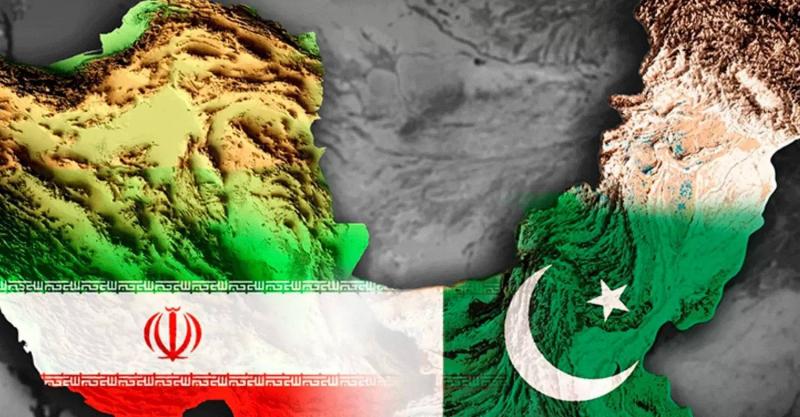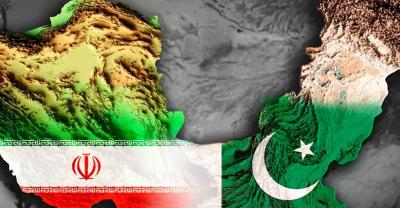Three Iranian officials, a source familiar with Iranian affairs, and an analyst have revealed that Iran's attack on Pakistan, which prompted a swift military response from Islamabad and raised fears of greater regional unrest, was driven by Iran's desire to enhance its internal security rather than ambitions in the Middle East. Analysts and officials indicate that the two neighboring countries, which possess significant military capabilities and often have disputes due to border unrest, seemingly wish to contain the tension arising from the largest recent cross-border incursion.
Iran shocked the region with a missile strike against what it described as radical Sunni militants in southwestern Pakistan. Pakistan responded two days later with an attack on what it termed separatist militants in Iran, marking the first airstrike on Iranian territory since the Iran-Iraq War, which lasted from 1980 to 1988. Tehran's attack was one of the most powerful cross-border incursions against the Sunni militant group Jaish al-Adl in Pakistan, which Iran claims is linked to the Islamic State. Many members of Jaish al-Adl belonged to another now-defunct militant group known as Jundullah, which had pledged allegiance to the Islamic State.
This escalation has compounded existing concerns about instability in the Middle East, which have intensified since the outbreak of war between Israel and Hamas in October. Iran-allied groups in Yemen, Lebanon, and Iraq have targeted U.S. and Israeli interests, including assaults on ships in the Red Sea, in solidarity with Palestinians in Gaza. Additionally, it followed a day after Iran conducted strikes in Iraq and Syria targeting alleged Israeli espionage activities and Islamic State operations in those countries, respectively.
However, the exchanges between Iran and Pakistan occurred far from that wartime area, in remote border regions where separatist groups and Islamic militants have long attacked governmental targets, often leading officials from both countries to exchange accusations regarding the parties responsible for the bloodshed. Gregory Brew, an analyst at Eurasia Group, stated that Tehran's strikes were largely motivated by its increasing concern over domestic armed violence risks following a deadly attack on January 3 for which the Islamic State claimed responsibility. Brew noted, “There is a lot of internal pressure to do something, and the leadership is responding to that pressure.”
Pakistan's response was notably strong, as it summoned its ambassador from Iran to protest the attack. Tehran condemned the Pakistani strikes, claiming they resulted in civilian casualties, and summoned Pakistan's top diplomat in Iran for an explanation. Nevertheless, neither government sought to link its conflict to the Gaza war or the attacks carried out by Iranian-allied groups supporting the Palestinians.
The Iranian Foreign Ministry stated that "Iran considers the security of its people and the integrity of its territory a red line" and expects its "friendly and brotherly" country Pakistan to prevent militant bases on its territory. The impetus for Iran's escalation was the devastating bombing on January 3 that killed about 100 people during a commemorative event in Kerman for military commander Qassem Soleimani, who was killed in a U.S. drone strike in 2020. Soleimani was a pivotal architect of Iran's efforts to expand its influence across the Middle East and was regarded as a hero by supporters of the conservative ruling establishment. Tehran vowed retaliation against the Islamic State, the Sunni militant group that claimed responsibility for the bombings.
An insider close to Iranian clerics described the Kerman bombing as an "embarrassment for the leadership," highlighting Iran's security vulnerabilities. The source indicated that Tuesday's attack aimed to demonstrate the capabilities of the country's security organizations amid fears of Iranian security weaknesses, adding, "Such terrorist attacks will receive an overwhelming response from Iran."
Iran has also arrested dozens it claims are linked to the Islamic State. Iranian missiles struck two bases of the Jaish al-Adl group in the Balochistan province in southwestern Pakistan, near the Iranian border. Iran, a Shia-majority country, perceives the Sunni militant group as a threat to its security. A senior Iranian security official told Reuters that Iran provided Pakistan with evidence of Jaish al-Adl's involvement in the Kerman attack and logistical coordination, urging Pakistan to take action against them. The official, who requested anonymity, stated, "We warned everyone that any actions against our nation and national security would not go unanswered."
Iran does not seek escalation, but patience has its limits. Brew explained that Iran has been pressuring Islamabad for years to address the issue of militants near their border, noting that the missile attack was a sign of Tehran's waning patience. However, Iran still views its role and influence in the Middle East as a central element of its security objectives. Brew noted that the Iranian strike on Pakistani territory also indicates Tehran's desire to demonstrate to both its enemies and allies its determination to defend its security amid the regional crisis regarding Gaza.
Michael Kugelman, director of the South Asia Institute at the Wilson Center in Washington, stated that the security tensions along the border have been a long-standing issue between Iran and Pakistan. He added that de-escalation would be challenging in the short term "given the high tensions." Nonetheless, it appears that both countries do not desire conflict. In public statements, Iran and Pakistan have indicated that the attacks did not target either country's citizens and that they do not wish to escalate further. Kugelman mentioned that the two countries might welcome bilateral dialogue and potential mediation from a third party, possibly China, which has good relations and influence with both. He concluded that "diplomacy will be crucial from now on."




